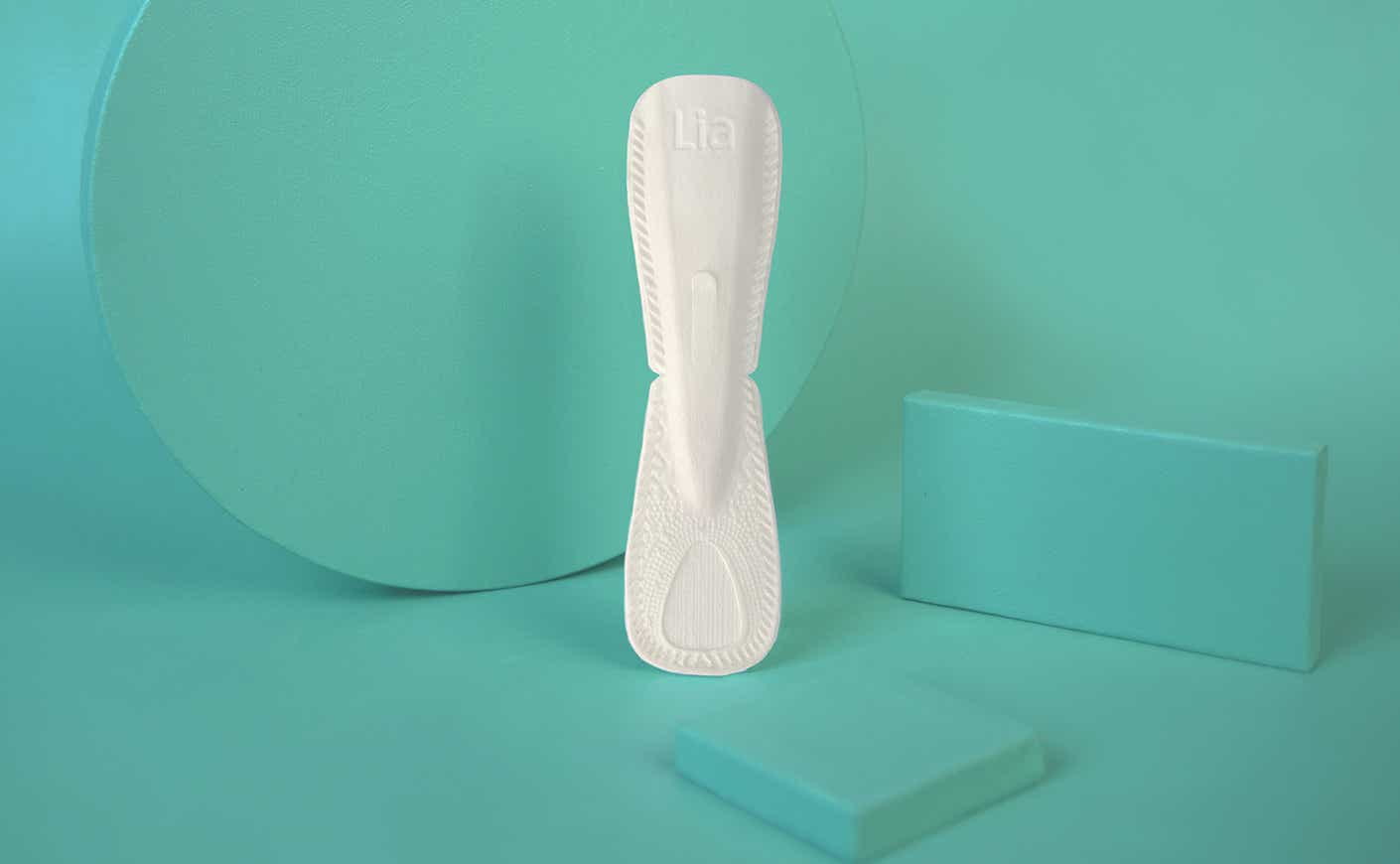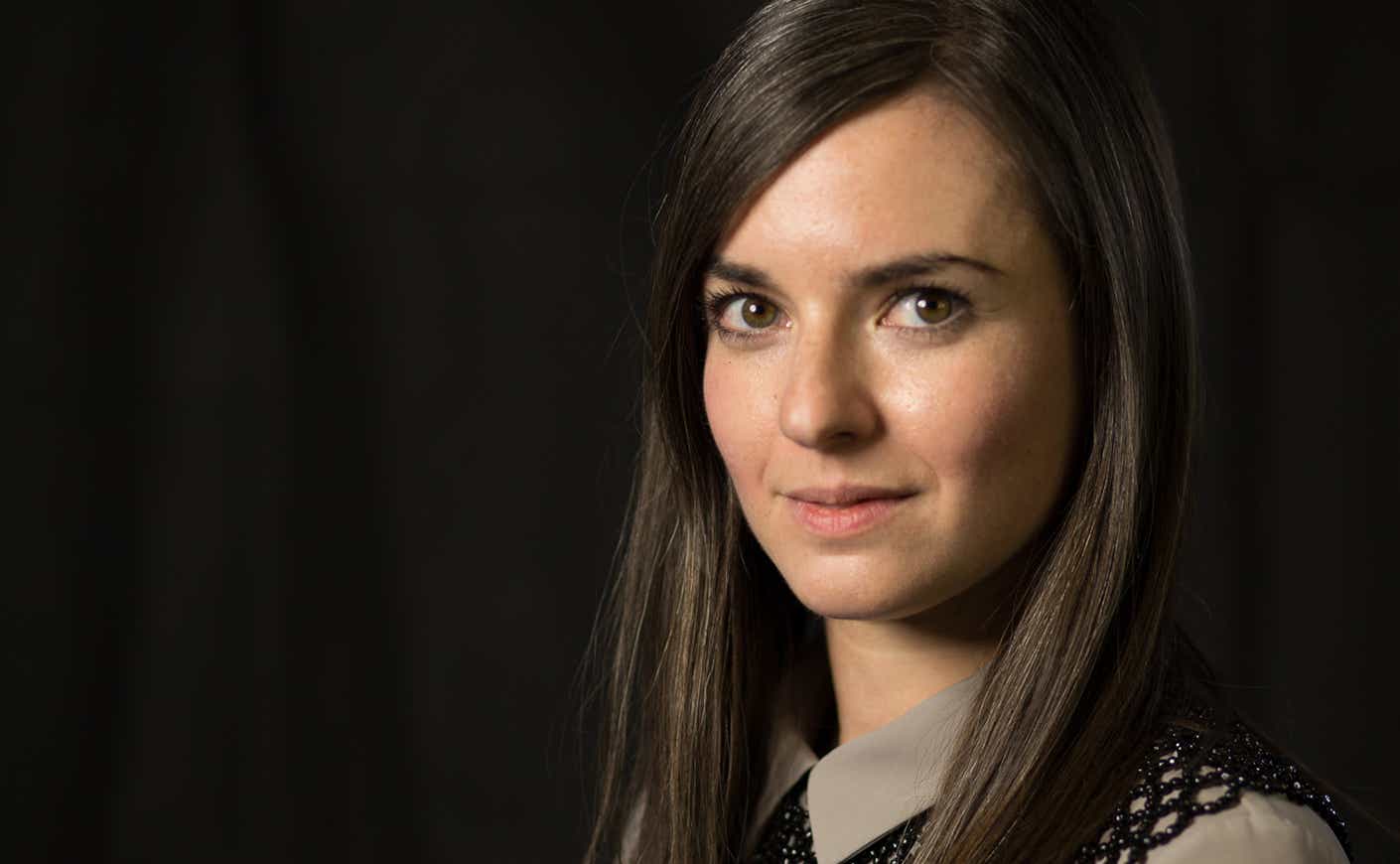Did you know that pregnancy tests generate about 2 million pounds of plastic waste in the U.S. each year? “That’s enough to stretch from here to the International Space Station and back about seven times,” said Bethany Edwards, founder of Lia, the women’s healthcare company behind the first 100% biodegradable and flushable pregnancy test.
Together, Bethany and co-founder Anna Simpson recognized that the at-home pregnancy test was ripe for innovation. “Everything that was out there was in pink, purple, or blue boxes with a lot of them having smiley baby faces on them,” said Bethany. Lia’s paper-based test comes in discreet green packaging and can be flushed once you’re finished. Right now, you can purchase a Lia test on their website. Team KCM spoke with Bethany about what inspired her to bring the pregnancy test into the 21st century, and the women who’ve inspired her.
Katie Couric Media: First things first, what is the history of the pregnancy test?
Bethany Edwards: Well, if you want to go way back, the original "pregnancy tests" involved people peeing on barley and wheat, frogs, rabbits. It’s a pretty unique history. But one of the interesting things about [modern] pregnancy testing is, when you look at the patents, a lot of them have been designed by men. The original ones looked like little chemistry sets which then morphed into the plastic tests. It was a woman, Meg Crane, who developed the first at-home pregnancy test.
You’ve created the first flushable pregnancy test, called Lia. What inspired you to change the classic ‘pee-on-a-stick’ test?
I've always really been passionate about the relationship between a woman and her health. I really believe that it should be sacred, and that you shouldn't be ashamed in any context, especially as it relates to reproductive health.
I met my co-founder, Anna Simpson, while I was at the University of Pennsylvania getting my masters. We began looking into the history of pregnancy tests. We spoke to other women and recognized that nobody had innovated these tests in over 30 years. We really believed that there was an opportunity to create something new and innovative that would allow a woman to protect her privacy. Women don’t want to hide these bulky tests at the bottom of trash cans, wrap them up into tin foil, or take them to public dumpsters.
Pregnancy tests are only used for a few minutes, but the plastic needed for them lasts forever. So we wanted to use paper based materials to cut down on plastic waste.
Tell us about Lia. What is the test like and where does the name come from?
Our Lia test is super thin and 100% biodegradable and compostable. You use it just like a traditional pregnancy test and then you’re free to tear it apart, flush it down the toilet, keep it for a scrapbook, crumble it up, or compost it. Our packaging is designed to be extremely discreet, so the only place that says ‘pregnancy test’ is on the back of the box.
As for the name, Lia, in Greek it means ‘bearer of good news’ and in Spanish, it’s the last three letters in the word ‘family’. We wanted a name that was warm and welcoming. It’s purposefully different from the cold and clinical-sounding names of existing test products on the market. It’s a name that could belong to your older sister or your cool aunt.

Do you see this technology being applied to other feminine products?
The coatings that we've developed go beyond just pregnancy tests. There’s the potential to take what we've learned and use this to create biodegradable [tampon] applicators or different handles for existing diagnostic tests.
What's one thing you wish you knew when you were getting started in your career?
Generally, as a woman, you'll be underestimated — especially in any areas around science or manufacturing. To succeed, it requires being shrewd at times. It might not feel comfortable, but it’s what’s required. Don’t be so hard on yourself.
One of my mentors, Karen Griffith Gryga, was part of DreamIt Ventures. She used to say that in studies of male basketball players, if they lose a game, they forget about it and move on, whereas female basketball players internalize a loss. It’s an interesting difference between genders, and I think being aware of that is powerful.
Was there a woman who inspired you to do what you're doing today?
I’m inspired by Meg Crane, who designed the first at-home pregnancy test. The fact that she was a graphic designer and not a trained scientist shows that if you’re dedicated to something, there’s a way to get it done.
Another is Cindy Eckert, who runs The Pink Ceiling. She got Addyi, which is kind of like a female viagra, approved by the FDA. She’s inspiring because she's taken a taboo area and run with it hard, in spite of the challenges.
Who is a fellow female entrepreneur that inspires you today?
Polly Rodriguez from Unbound: She grew up in the rural Midwest and she is really changing sexual health and wellness. Unbound offers a variety of female health and sex toys. She’s taken a really challenging taboo topic area and built a business around it. That’s always infinitely harder — and I think she's done an incredible job with that.
Eleanor Turner from The Big Favorite is also building stuff completely from scratch. She’s got a sustainable clothing underwear company that was inspired by her grandfather’s line of denim jeans. She’s really working on the whole circular economy stuff. I admire women and people who take those challenges on, because it’s not easy.









